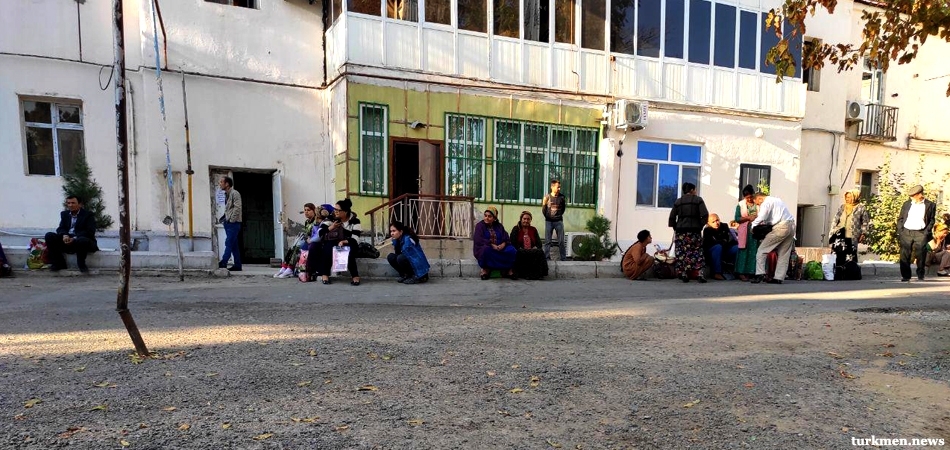
Restrictions Fail to Stop Turkmen Trips to Uzbekistan to Withdraw Cash
20.11.2019
It may be a new year in Dashoguz but the city is suffering from the same old problems. While TV presenters parrot the benefits of digitization and high technology, the old and disabled still have to stand in line to receive their pensions, and state employees line up at ATMs, cursing the authorities for the high commission charges. The newspapers talk of economic growth, increasing momentum, and the introduction of efficient models, but in real life it is grocery and medicine prices that grow every day, while there is a shortage of groceries at state prices, and restrictions on leaving the country too. Turkmen.news correspondent Selim Haknepesov writes about the situation in Dashoguz region and the mood of the local population.
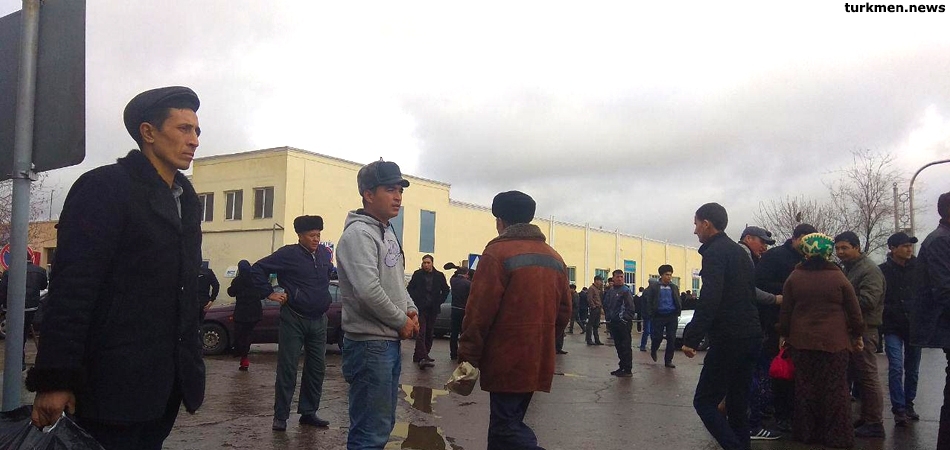
In Dashoguz you have the gut feeling that life is passing you by. It’s not important that mankind is on the threshold of the third decade of the 21st century – practically nothing changes in this city in the north of Turkmenistan. The main employer remains, as it was 20 years ago, Bay Bazar, the largest market in the northern region. There’s so little work in the countryside, and none at all in winter, while buying and selling at least brings in some earnings. As always the market is full, but prices are high; that’s why it seems there are more vendors than customers, and more taxi drivers than passengers.
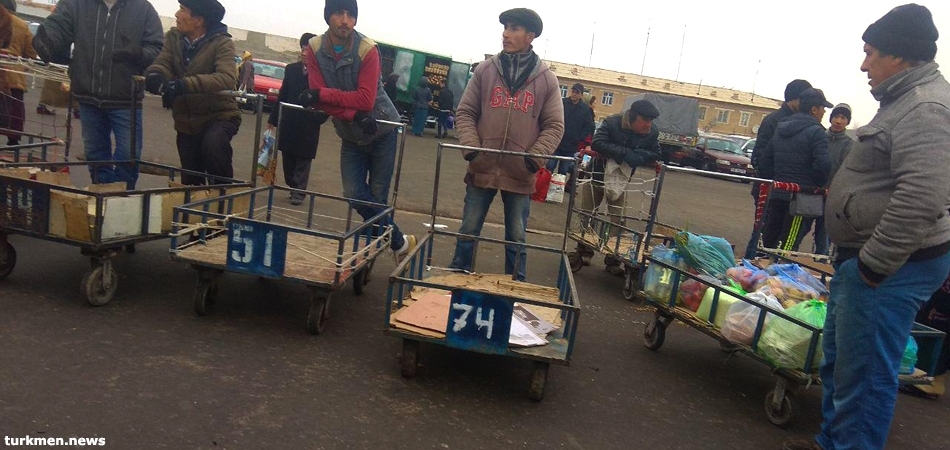
Everyone who can has long since beaten a path to neighboring Uzbekistan, where they withdraw cash from their bank cards and do some petty trading. For 1,100 manats (around $60) people arrange a visa with a travel agent, which allows them to visit their neighbors twice a month. They try not to remain in Uzbekistan for more than three days, or they will have to register and this costs money – 80 manats. For our citizens’ convenience the Uzbeks keep payment terminals in their cars right on the border, which means there is no need to go to the nearest village Shavat: you cross the border, sit in the car, appear to pay for some goods with your Turkmen bank card, receive cash in hand, and then go back to the border crossing point. Some stay over, renting a bed for a night in a private house. This costs 10,000 Uzbek sums or 20 manats (just over one dollar). Conditions are Spartan; 10 or 15 people might live in the room at one time, the toilet is outside, and use of the bathroom costs extra.
Despite these conditions people still make the trip. True, they have to wait for four to five hours on our side of the border checkpoint (it’s around 30 minutes on the way back, regardless of the length of the line); they answer the same questions from our migration officers: where are you going, why, who will you see, what are you taking with you, do you have a Visa card? True, they restrict the quantity of goods people can bring through; for example, on the way back they’re allowed only two packs of cigarettes and two bottles of Coca-Cola. But if people go, then it means they make something out of it, as there’s no other work.
The local, ethnic Uzbek elders say it would be good if Uzbekistan followed the example of Turkey or Georgia and introduced a visa-free regime with Turkmenistan, even if it only applied one-way, as our authorities will not opt for openness with our neighbors. Some doubt that Uzbekistan will do it, while others say in that case the Turkmen authorities will introduce exit visas, otherwise everyone will flee the country. One Uzbek of my acquaintance whispered to me at a memorial gathering that people are ready to write about this to Uzbek President Shavkat Mirziyoyev.

The lucky ones are the people who have managed to get public service jobs in the city, even if they have to make a 100-km round trip every day to get there. People adapt to anything; over time they begin to rent apartments in the city and get their children into the local schools. In this way the villages are getting emptier.
The city dwellers go abroad, as there’s nowhere else for them to go: on one staircase in a large apartment block two to three apartments will be empty. Their owners have either taken the whole family and gone abroad to work in Turkey, living there for years, or parents have left the children with their grandparents and gone abroad to work, regularly sending money to their family for food, clothes, and medicines.

The local population is dying before our eyes. It seems as though one day you are chatting to someone and the next day his relatives call you about the funeral or memorial gathering. Before the holidays an old acquaintance from the printing house, Esen Artykov, died suddenly; they said he was struck down by a cocktail of illnesses including diabetes. The man was no more than 60. His friends at his seventh-day memorial shook their heads: it’s “already good” to live that long. Often it’s young people that die, and even more often 40-year-olds and 50-year-olds. The causes are the same for all: heart attack, stroke, cancer, diabetes, road accident.
Weighed-down by concerns about daily life, people fail to pay attention to their own health, to their symptoms, aches and pains, and don’t go to the doctor until it’s too late. And do the local hospitals do any good anyway? Doctors give wrong diagnoses, start an incorrect course of treatment, and the patient ends up disabled. While another patient is receiving treatment for pyelonephritis, he is given hepatitis C. Doctors fail to spot TB in a third, and a fourth is already ill when he goes to work in Turkey where he’s diagnosed with end-stage cirrhosis of the liver. A fifth patient dies while on a drip, a sixth… Need I go on?
All medicines are expensive, while you have to pay for any service, even something absolutely unnecessary. A patient complains of pain in his right side, and is sent for a fluorography for which he has to pay 8 manats. Patients say this is all down to the chief doctor at the regional hospital. Or someone goes to hospital and ends up with a bill for supposedly spending 10 days on the ward there (at 11 manats a day) and is obliged to pay. In fact, the person didn’t spend even one day on the ward but has to pay for injections not given, tests not done. People say it’s cheaper just to lie down and die.
P.S. This report has turned out pessimistic again. Of course, there is some development in the city, there is some work. At present, for example, a whole residential district of apartment buildings is being built in the old brewery district. Before that, new homes were built opposite the former women’s penal colony. But can many people out of the region as a whole be hired to work on these building sites? And this isn’t permanent employment either – once the building is finished, that’s the end of the work. The prices of the apartments in the new buildings aren’t bad at all. For example, a three-room apartment starts at 350,000 manats (around $19,000), which is peanuts compared to prices 10 years ago. But in conditions of poverty and unemployment not many of the local population can afford it.

Upmarket Bar in Ashgabat Closed After Brawls Involving President’s Cousins
08.04.2024

Petrofac Back in Favour in Turkmenistan After Falling Foul of Berdimuhamedov
18.03.2024

Turkmenistan’s Defense Minister Deprived Officers From Housing Entitlement Despite Widespread Resignations
28.02.2024
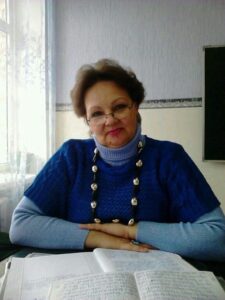
Murder and Suicide at Troubled Turkmen School
28.02.2024
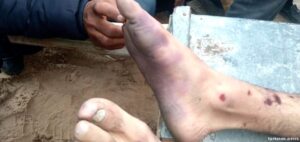
Turkmen Prosecutor’s Office Claims Baloch Detainee’s Fatal Wounds Were Self-Inflicted
01.02.2024
Tell us!
Add comment
your e-mail will not be published